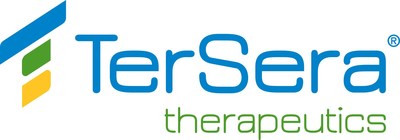TerSera Therapeutics LLC announced today the presentation of patient-reported clinical and productivity outcomes data from their registry trial (RELAX) in patients with carcinoid syndrome diarrhea (CSD) receiving treatment with Xermelo (telotristat ethyl).
|
DEERFIELD, Ill., Nov. 9, 2021 /PRNewswire/ -- TerSera Therapeutics LLC announced today the presentation of patient-reported clinical and productivity outcomes data from their registry trial (RELAX) in patients with carcinoid syndrome diarrhea (CSD) receiving treatment with Xermelo (telotristat ethyl). The data were presented in virtual poster sessions during the North American Neuroendocrine Tumor Society's (NANETS) Multidisciplinary NET Medical Symposium on November 3-6, 2021.1 Carcinoid syndrome (CS) is a rare condition that occurs in patients living with metastatic neuroendocrine tumors (mNETs) and is characterized by frequent and debilitating diarrhea that often prevents patients from leading active, predictable lives, as well as by facial flushing, abdominal pain, fatigue and, over time, heart valve damage.2-4 RELAX is an ongoing, noninterventional prospective registry of U.S. patients with CS. Study participants completed online surveys before starting Xermelo and every 6 months for up to 3 years. At each time interval, patients reported on changes in their clinical symptoms, use of rescue medication, weight, and work productivity and activity impairment (WPAI). Patient satisfaction with Xermelo treatment was also assessed at each 6-month interval. 107 patients completed surveys at baseline and at month 6 of treatment with Xermelo. Patients' satisfaction with control of their CSD improved from 47% at baseline to 78% at 6 months. Most patients reported improvement in number of daily bowel movements (84%) and CS symptoms (80%) after 6 months of Xermelo treatment. Reduced or stable rescue medication use was reported after 6, 12, and 18 months of treatment (75%, 76%, 83% of patients respectively). Additionally, a majority of patients taking Xermelo reported stable or increased weight after 6, 12, and 18 months of treatment (76%, 80%, 74% respectively). Patients also reported a reduction in work productivity loss (mean reduction = 13.2 points, SD = 18.31) and overall activity impairment (mean reduction = 9.4 points, SD = 26.76) after 6 months of treatment with Xermelo.1 "Results of this long-term follow-up from the RELAX patient registry continues to show very encouraging sustained benefit with Xermelo in helping neuroendocrine tumor patients control the symptoms of carcinoid syndrome, maintain weight, and reduce impairments to work productivity and activity," said Daneng Li, M.D., Assistant Professor, Department of Medical Oncology & Therapeutics Research and Co-Director of the Neuroendocrine Tumor Program, City of Hope, a cancer research and treatment organization near Los Angeles. About the RELAX Study: About Carcinoid Syndrome and Carcinoid Syndrome Diarrhea About Xermelo Patients and healthcare professionals with questions about Xermelo should contact 1-844-334-4035 or visit www.Xermelo.com. Important Safety Information about Xermelo: Indication Warnings and Precautions: Xermelo may cause constipation, which can be serious. Monitor for signs and symptoms of constipation and/or severe, persistent, or worsening abdominal pain in patients taking Xermelo. Discontinue Xermelo if severe constipation or severe, persistent, or worsening abdominal pain develops. Adverse Reactions: In a clinical trial of patients with carcinoid syndrome diarrhea and 4-12 bowel movements per day, the most common adverse reactions (>5%) include nausea, headache, increased gammaglutamyl-transferase, depression, flatulence, decreased appetite, peripheral edema, and pyrexia. In a second clinical trial of patients with carcinoid syndrome diarrhea and less than 4 bowel movements per day, additional adverse reactions of abdominal pain and constipation were reported in >5% of patients. Drug Interactions: If necessary, consider increasing the dose of concomitant CYP3A4 and CYP2B6 substrates, as Xermelo may decrease their systemic exposure. If combination treatment with Xermelo and short-acting octreotide is needed, administer short-acting octreotide at least 30 minutes after administering Xermelo. Use in Special Populations: Xermelo is not recommended in patients with moderate and severe hepatic impairment. For more information, please see the full Prescribing Information for Xermelo. You are encouraged to report negative side effects of prescription drugs to the FDA. Visit www.fda.gov/medwatch, or call 1-800-FDA-1088. You can also contact TerSera Therapeutics at 1-844-334-4035 or medicalinformation@tersera.com. About TerSera Therapeutics References:
Xermelo® is a registered trademark of TerSera Therapeutics LLC or its affiliates. For more information:
SOURCE TerSera Therapeutics LLC |





